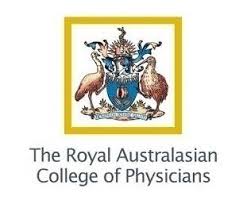Continued from Part Two: The misinfodemic spreads worldwide
The first two parts of this series were based on an independent analysis of 18,000 news stories covering “EVALI” – an outbreak of lung injuries that occurred in the United States in 2019. The probable cause of that outbreak is now clear: An adulterant in unregulated illicit THC vaping products. Part One explored how the media blamed legal nicotine vaping for lung injuries that were caused by unregulated illicit THC vaping. Part Two looked at how that misdiagnosis then spread to other countries.
Part Three: Why misdiagnosing “EVALI” matters
Smoking is the number one cause of all preventable cancers, heart and lung disease. The death toll from smoking this year will exceed – by far – the number of people projected to die from COVID-19. The COVID-19 pandemic will eventually end. It is less clear when the current 100-year-long smoking “epidemic” will end. Decreasing public misperceptions surrounding alternatives to smoking might help.
Recent surveys show a dramatic increase in the number of people who believe that nicotine vaping is as harmful as, or more harmful than, smoking (see Parts One and Two, and the Foundation’s Global State of Smoking Polls from 2017 and 2019). Misperception of relative risks worsened in many countries as the US official misdiagnosis of the “EVALI” outbreak filtered through the media to the public.
Public misunderstanding may cause substantial harm if it convinces people who use safer nicotine products to return to smoking, discourages smokers from quitting, and encourages policy makers to embrace taxes and bans that favor cigarette sales. Which begs the question: Are “safer nicotine products” truly safer?
In the case of a smokeless tobacco product called snus, the answer is clearly “yes” based on decades of epidemiological data. In October 2019, the US Food and Drug Administration (FDA) authorized a snus manufacturer to advertise its products as safer than cigarettes. So yes, safer.
We do not have long-term epidemiological data on nicotine vaping. These products have only been used by millions of people for 14 years. But we do know that smoking shortens the lives of half of all long-term smokers by 10 years. And we now have a substantial (and growing) body of evidence on the constituents of nicotine vapor, as well as the short- and medium-term health effects in humans.
It took years to develop a scientific consensus that smoking kills. The first major confirmation came from the British Doctors Study, launched in 1951. Findings from that study played a central role in the pivotal 1962 Royal College of Physicians report on Smoking and Health, which heralded the early beginnings of tobacco control (two years before the first US Surgeon General report on smoking).
Thankfully, science works faster today. Some claim it would take a modern toxicologist less than a week to prove that cigarette smoke is toxic. A growing list of scientific and public health organizations have reviewed all the available evidence from thousands of scientific studies on safer nicotine products including snus and nicotine vaping products (see list below and here).
These organizations all say “safer.” To take one key example, the official position of the Royal College of Physicians is: “…available data suggest that [the long-term health risks of e-cigarettes] are unlikely to exceed 5% of those associated with smoked tobacco products, and may well be substantially lower than this figure… [and] E-cigarettes appear to be effective when used by smokers as an aid to quitting smoking.
The “EVALI” misinfodemic widened the gap between this growing scientific consensus and public beliefs. Tobacco control experts and the media must now work together to correct these public misperceptions. The alternative is more preventable deaths from smoking.

All statements are hyperlinked to the original documents.

This statement was created and endorsed by: Action on Smoking & Health Scotland • Cancer Research UK • Chest Heart & Stroke Scotland • Chief Medical Officer for Scotland • NHS Ayrshire and Arran • NHS Greater Glasgow and Clyde • NHS Lothian • NHS Tayside • Roy Castle Lung Cancer Foundation • Royal College of General Practitioners • Royal College of Physicians of Edinburgh • Royal College of Physicians and Surgeons of Glasgow • Royal Environmental Health Institute of Scotland • Scottish Collaboration for Public Health Research and Policy • Scottish Consultants in Dental Health • Scottish Thoracic Society • UK Centre for Tobacco & Alcohol Studies • University of Edinburgh • University of Stirling


NOTE: This was the official statement from 2018-2019. As of November 2019, ACS no longer recommends e-cigarettes as a smoking cessation tool. Their stated reason for this change was “e-cigarette use by young people.” Illegal under-age use is undesirable, but does not change the original finding that nicotine vaping is less harmful than smoking.



NOTE: This is a Tweet from the Académie Nationale de Pharmacie. Not an official statement.

© 2023 Foundation for a Smoke-Free World. All rights reserved.